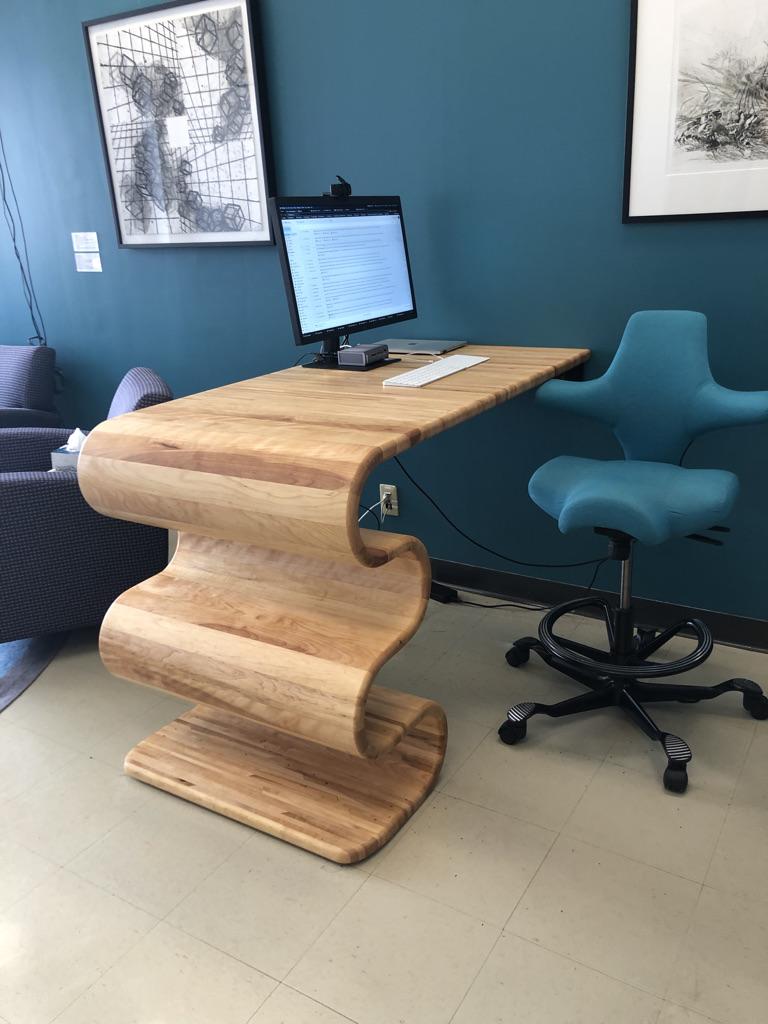Smidt says she loves the lathe but is also very fond of a small tool called a French curve scraper, which she used to sand the curves of the desk that was her ambitious first project in the shop. The piece, which Smidt calls her “noodle desk,” consists of a butcher block top that S-curves to the floor for support. It’s made of reclaimed maple from MIT’s basketball court renovation, which the shop had salvaged. “It’s always such a pleasure to use the perfect hand tool,” she says. (Find a link to photos and step-by-step instructions for building the desk here.)

BLONDEGEEK VIA INSTRUCTABLES
Although Smidt was an undergraduate at MIT, she didn’t discover the Hobby Shop until she joined the faculty in September 2021 (after earning her PhD from the University of California, Berkeley). “For that first year, the Hobby Shop was pretty instrumental in my maintaining sanity,” she says, noting that MIT had just begun to relax its early covid restrictions. “I think I’ve now used just about every machine.”
Novices and experts
More than a workspace, the Hobby Shop is also a community—one where people from all corners of MIT can come together to share camaraderie as well as tips and techniques. “I’ve met some of my favorite people from MIT at the Hobby Shop,” Smidt says.
Fischman even owes his marriage to the shop. Thanks to a referral from a contact there, he wound up with a 25-year part-time gig teaching two night classes in woodworking at the Boston Center for Adult Education—where he met his wife. “That was a connection the shop made possible,” he says.
Novices are always welcome, and the shop’s staff—director Hayami Arakawa and technical instructor Coby Unger—are always willing to provide expert guidance. “It’s encouraged to ask questions,” Smidt says. Classes and workshops provide more formal training on complex machines or in unusual crafts, such as steam-bending wood.
Projects undertaken in the shop run the gamut from simple cutting boards to fine furniture. Fischman says the piece he’s most proud of is a curved-edge walnut console table with hand-planed, tapered octagonal legs. But not everyone makes furniture. “We had a guy who came in to build a machine to put the caps on his yogurt containers,” Fischman says. “We’ve had harpsichords built in the shop, canoes built in the shop. It goes on and on.”
Smidt adds, “It’s really inspiring to see what other people are making.”
Now, nearly 50 years after his bowl was spotlighted in Fine Woodworking, Fischman says he still finds joy at the Hobby Shop. “The shop is fun,” he says. “I think that’s an important aspect of it.”
Another, he says, is knowing that he has created pieces that will live on. “I’m 76. I think about legacy a bit,” he says. “The woodworking gifts that I gave to people that they cherish now are part of my legacy.”

